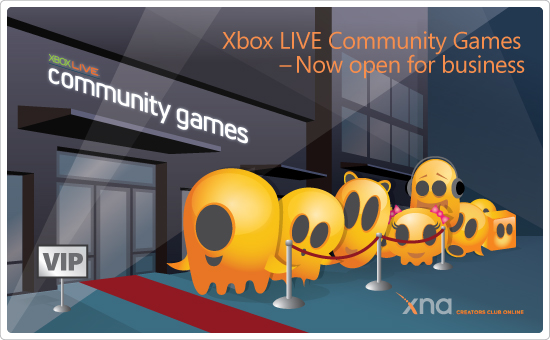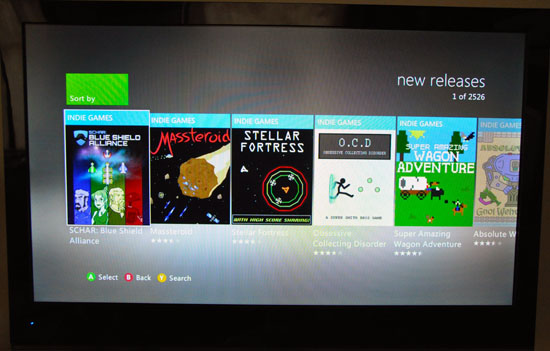
A Focus on Indie
Microsoft is a company in the software business first and foremost. They are well known for their excellent development tools for Windows and Xbox consoles alike. But while the Windows tools were available to anyone, you had to pay a boatload of cash to have access to tools for the Xbox 360. Enter the Community Games initiative.
In February of 2008 Microsoft launched the tools via their XNA Game Studio Express toolkit to allow anyone to develop games that worked not only on Xbox 360 but on a PC as well. What was even more enticing was the promise that developers could sell their games on the Xbox Live marketplace - with Microsoft taking a cut of course. These cross platform development tools brought in hundreds of games to Microsoft's platform and developers initially flocked to the system on the hopes and dreams of creating the next big game.
Microsoft once again relied on their community as the only way to get your game on the marketplace was by going through a peer review process. Over the years the process evolved as did the Community Games initiative. The dashboard updates saw the indie games constantly shifted and buried despite a strong group of developers releasing dozens of games a week. While the service got a bit of a bum rap, there was nothing like it out there on any of the consoles; with the closest "competitor" being the mobile marketplaces of Google Play and Apple's iTunes.

SCHAR: Blue Shield Alliance on the Dashboard!
As someone who created a game via this service it was both a rewarding a frustrating process at the same time. The sense of accomplishment from seeing my game listed on the Xbox dashboard was immeasurable, but inconsistencies in the process and it's quick burial among other apps was a disappointment.
But what about Sony? What options did they offer small developers to get on the PlayStation 3 hardware? Sadly it didn't exist, at least, not yet. That's not to say smaller developers haven't found their way onto the PlayStation Network - we've seen titles like Retro City Rampage, Journey, and Tales from Space: About a Blob. While these titles were mostly from established studios - a few managed to be from the little guy. The difference here is they still had to go through a pitch process to get there.
Up until now Microsoft and Sony had a hard time coping with what indie developers had to offer their audiences. The concept of an "open" system is incredibly infant on consoles, and if anything, a little scary for their curators. But it seems, at least to some degree, that is the trend in game development - a careful mix of big budget, middle tier and the indie game.